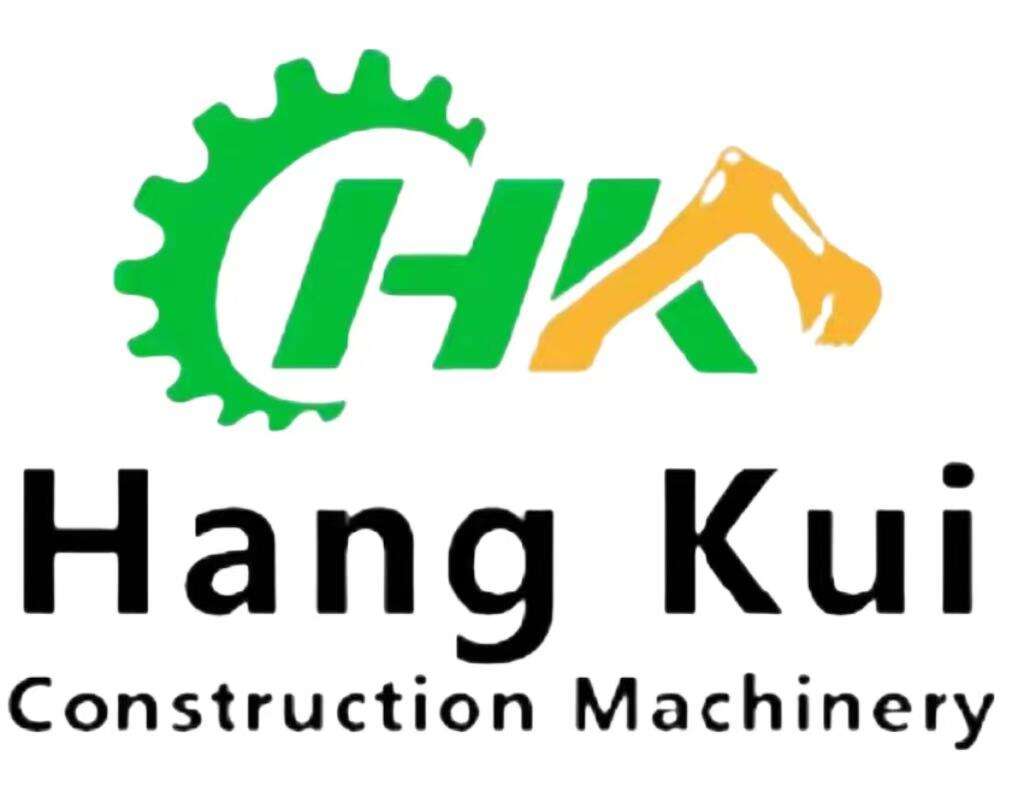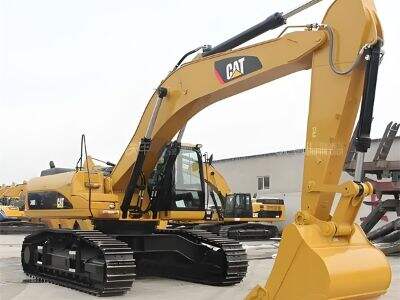Ɗayan mafi mahimmancin la'akari lokacin da aka fara sabon aikin gini shine girman mai tona ta. Yana taimaka musu injinan sauti ne da aka gina don motsa datti, tona ramuka, da ci gaba da aiki a wuraren gini. Zaɓin girman da ya dace na tona ku yana da mahimmanci don nasarar aikin ku, saboda yana ba ku damar kammala aiki akan lokaci.
Akwai nau'o'in nau'i daban-daban na tono. Wasu ƙanana ne, waɗanda ake kira mini excavators, waɗanda ke da sauƙin motsawa kuma suna iya shiga cikin matsatsun wurare. Wasu Hangkui sun fi girma, ana magana da su a matsayin masu tono hydraulic, kuma suna magance manyan ayyuka masu nauyi akan buƙatun wutar lantarki. Dangane da sikelin aikin ku, kuna buƙatar zaɓar injin tona mai girman da ya dace. Idan aikinku ya fi faɗi, kuna buƙatar babban injin tono don ɗaukar nauyi. Amma idan aikinku ya yi ƙarami, to ƙaramin excavator zai sami aikin daidai.
Wannan ana cewa, kafin ka sayi injin tona, ya kamata ka yi la'akari da aikin (s) naka a hankali da girman da kake buƙata. Zaɓin girman da ya dace abu ne mai mahimmanci don kauce wa matsalolin da ke gaba kamar yadda zai iya zama tsada a cikin dogon lokaci. Misali, mai tonawa wanda ya yi kankanta ba zai iya motsa isassun kayan aiki don yin aikin daidai ba, yayin da SAURARA wanda yayi girma yana iya zama mara ƙarfi, mai wahalar sarrafawa kuma yana iya yin lahani ga rukunin yanar gizon.
Zaɓin Haɓaka Dama don Ƙasa da Gidanku
Wani muhimmin abin la'akari shine nau'in ƙasa da kuma inda aikinku zai gudana. Idan ƙasa tana da wuya ko ƙasa da ƙarfi, hakan zai taimaka muku yanke shawarar girman injin ku, yankin aikin kuma yana ba da gudummawa mai yawa. Kasa daban-daban suna aiki mafi kyau tare da wasu nau'ikan tono.
Misali, karamin excavator yana yin aiki sosai akan babban yumbu da kasa yashi. Injin iya tono ƙasa mai laushi cikin sauƙi da motsi abu ba tare da ƙoƙari sosai ba. Sabanin haka, babban mai tonawa mai ƙarfi tare da tsarin hydraulic mai ƙarfi zai sami ma'ana idan ƙasa tana da wuya ko tana da duwatsu da yawa. Suna da ƙarfi mai ƙarfi da ake buƙata don karya ƙasa mai tauri da tsire-tsire masu amfani da irin wannan na'urorin tono.
Dole ne ku san game da ƙasa da kuma inda aikinku zai kasance kafin zabar injin tono. Samun wannan bayanin zai ba ku damar yanke shawara mai zurfi. Zaɓin tono da ba daidai ba don ƙasa ko wurin zai iya haifar da lalacewa ga injin, ƙarin kuɗin gyara da kuma sanya aikin ba shi da aminci ga kowa da kowa.
Inganta Ma'auni Tsakanin Kuɗi da Ayyuka
Dole ne ku kuma yi la'akari da farashi da aiki lokacin zabar excavator. Kudin yana nufin adadin kuɗin da za ku kashe don siyan na'urar, kuma aikin yana nufin yadda na'urar za ta yi aikinta. Masu haƙa da ke da ƙarfin dawakai ko ƙarin ƙarfi na iya yin aiki da sauri da kyau, amma kuma suna iya ƙara tsadar siya.
Kyakkyawan sulhu tsakanin farashi da aiki yana da mahimmanci. Idan ka zaɓi na'urar tona mai ƙarancin tsada wacce ba ta da isasshen ƙarfi, za ka iya kawo karshen ja da ƙafafu don shiga aikinka. Wannan ragi na iya haifar da ƙarin farashi, don haka ya sa aikin ya zama ƙasa da sauƙi.
Hakika, da 10 ton excavator wani bangare ne na kudin. Hakanan ya kamata ku yi la'akari da kuɗin kulawa, gyara, man fetur, da horar da ma'aikatan da za su yi amfani da na'ura. Duk waɗannan farashin na iya ƙarawa, don haka yi la'akari da su lokacin yin zaɓin ku.
Masu hakowa da Haɗe-haɗe na Musamman
Haɗe-haɗe-haɗe-haɗe na iya haɓaka aikin injin. Wadannan add-ons kuma za su iya sa aikin ku ya zama mai inganci ta hanyar sauƙaƙa ayyukan. Akwai nau'ikan add-ons da yawa, kuma ana amfani da su don ayyuka daban-daban.
Guga grading, alal misali, abin da aka makala ne wanda ya dace don shimfida ƙasa daidai da cika ramuka ko ramuka. Mai karyawa, a gefe guda, kayan aiki ne mai nauyi wanda kuke amfani da shi don karya simintin zuwa kananan guda. Hakanan zaka iya ƙara akan babban yatsan hannu wanda ke taimaka wa injin tono don ɗauka da ɗaukar manyan abubuwa, yana ba ka damar yin ƙari da wannan kayan aikin.
Yanke shawarar irin nau'in haɗe-haɗe da za ku buƙaci shine mataki na farko da za ku ɗauka kafin ku yi hayan tono. Hakanan dole ne ku tabbatar da cewa mai tonawa zai iya karɓar waɗancan add-kan. Wannan kuma zai tabbatar da cewa zaku iya rufe haɓaka aikin injin ku da gudanar da aikinku cikin sauƙi.
Tabbatar cewa mai tona ku na iya ɗaukar aikin
Daga ƙarshe, aikin da kuke yi shine babban abin la'akari yayin zabar mai tona. Zaɓin na'ura: Kuna son tabbatar da cewa kuna da injin da ya dace don aikin, cewa ba ku da kanku, ko makale da kayan aikin shoddy.
Yi La'akari da Abin da Aikinku Ke Bukata Kafin Siyan excavator Wannan ya ƙunshi yin la'akari da sikelin wurin aikin, tsawon lokacin da ake tsammanin aikin, yanayin ƙasar da za ku yi mu'amala da shi, da duk wani abin da aka makala da kuke buƙatar aiki tare da mai tono.
Hakanan yana da kyau ku haɗa kai da ƙwararru waɗanda za su iya tantance aikinku tare da ku kuma su ba ku shawara kan zaɓin injin da ya dace don wannan aikin. Tare da haƙa mai kyau, za ku adana lokaci, kuɗi, da ƙoƙari akan aikin ginin ku.
A taƙaice, ɗaukar madaidaicin tono don aikin yana da mahimmanci don nasarar aikin ginin ku. Yi la'akari da wurin aikin da nau'in ƙasa lokacin zabar mai tona, daidaita farashi tare da aiki, duba kayan ƙara kayan aikin da ke akwai kuma tabbatar da mai tono ku zai iya yin aikin. Injin gine-gine na Hangkui yana ba da na'urori daban-daban waɗanda zasu iya biyan bukatun ayyuka daban-daban. Kira Hangkui a yau don taimaka muku samun ingantaccen injin tono don aikin ginin ku mai zuwa.

 EN
EN








































 ONLINE
ONLINE